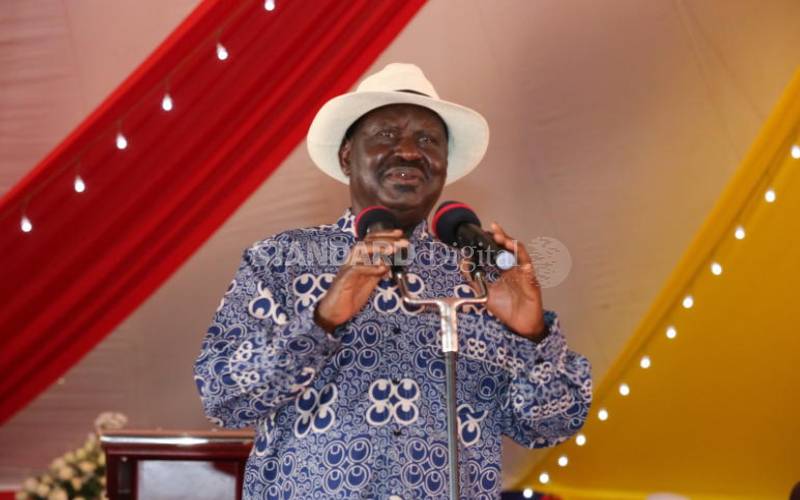×
The Standard e-Paper
Kenya’s Boldest Voice

I used to love Raila Odinga. My bleeding heart worshipped the man. He was a freedom fighter. An ideologue. A voice for the voiceless. A man of the people. He was my hero. Fast forward to the present day and I have had a change of heart. Unsurprisingly.
It’s hard to believe that the Raila of the 2017 boycotts, the man who successfully challenged an election, and then went on to swear himself in as the people’s president, is the same person who stood on the steps of Harambee House and shook hands with Uhuru Kenyatta.